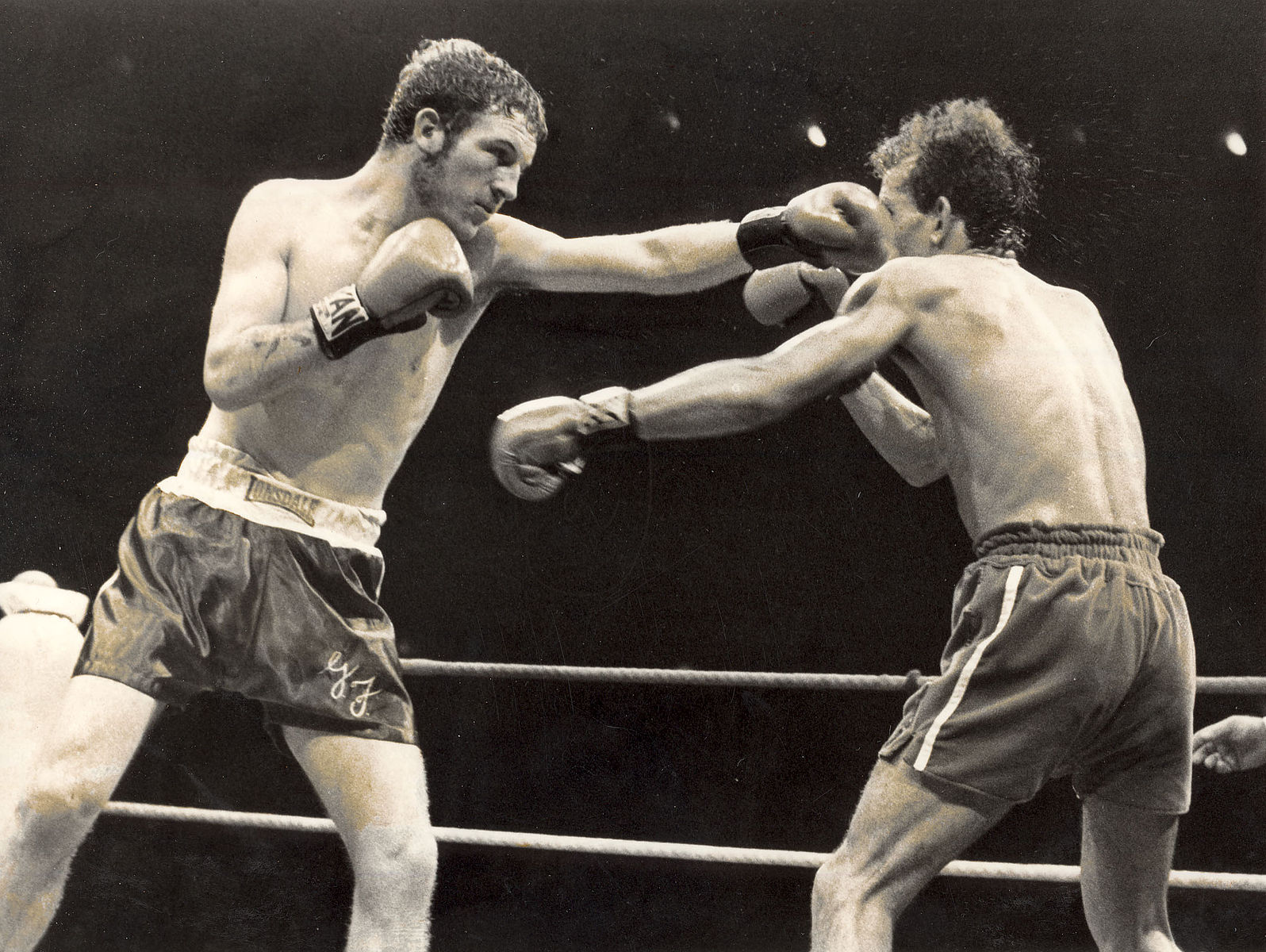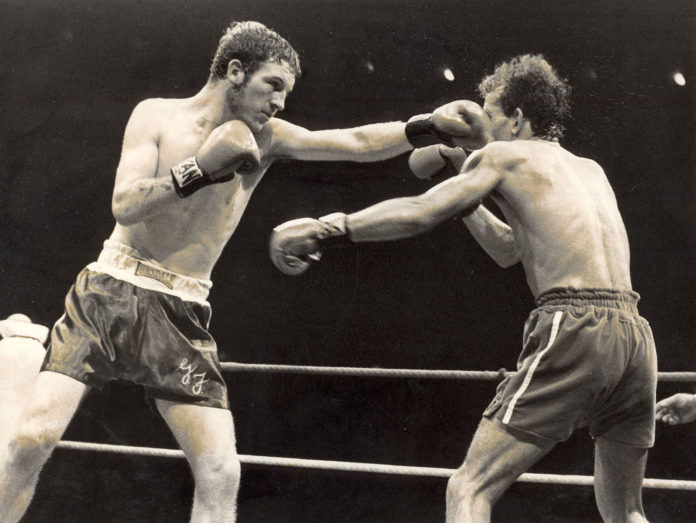
The Golem
Disclaimer: This article is not intended to incite or encourage violence or illegal activity.
Even a rudimentary analysis of modern nationalist movements in Western nations makes it immediately clear that non-violent protest, resistance and political solutions that exclude all consideration of violence as a political tool occupy a central position in the shared narrative of the majority of nationalists. Even a casual survey of the public literature and commentary that is produced by nationalist individuals and groups makes it clear that the vast majority of them reject violence in all forms and under any circumstances. Those who advocate violence in any form are a tiny minority of nationalists by comparison. This minority are largely shunned by the majority and tend to occupy only the periphery of the movement. That is certainly true in Australia, and it is almost certainly true in other majority white nations around the world.
However, the pro-violence minority at the fringe of nationalism is routinely portrayed by the mainstream media and political establishment as being representative of the majority of nationalists. The image of nationalism projected to the public by the mainstream media is an inverted one, where the majority of nationalists are richly, but falsely, illustrated as being hell-bent on violence and those who reject violence under all circumstances are presented as the excluded fringe minority, when in reality, the exact opposite is true.
The mainstream media and the political establishment will say about us whatever they want, and will continue to misrepresent the facts in relation to nationalism while ever it is in their own political and economic interests to do so. There is nothing we can do about what they say or do. We need to get busy on the construction of our own house, rather than worrying about what others are saying about us.
When it comes to those who speak and write publicly on the promotion or defence of Australian nationalism, there should be no doubt that the overwhelming majority of nationalist commentators, advocates and patriotic Australians express a clear rejection of violence as a means to achieving political aims in favour of non-violent political advocacy and non-violent political activism and protest. That is the position that the majority of nationalists hold and abide by, even though we are portrayed as the opposite by the establishment media.
But the real question is this: why is it that Australian nationalism is so committed to a complete rejection of violence in any and all circumstances and in such strong support of non-violent political-only solutions as the only real, moral, legitimate and achievable means of attaining our political goals? Exactly what is it that is creating and driving that clear and consistent rejection of violence in all circumstances in favour of the uniform and consistent pursuit of non-violent activism and protest and a solely political solution to the big issues that our people face?
In my opinion it can only be one of two things that are motivating that choice to reject violence.
The first answer is, that the rejection of violence as a means to achieving political results is based on a sound intellectual argument. It is an argument which posits that violence always achieves nothing but more violence, and that those who turn to violence as a means to achieving their desired outcomes will ultimately be betrayed and turned on by that genie, once it is out of the bottle.
The outright rejection of violence as a means of achieving political outcomes presents powerful arguments in its support. The position is widely promoted and largely adopted across society. We have built large parts of our culture around this maxim. We teach it to our children in the playground and we preach it to our brothers and sisters on the weekends. “Violence solves nothing”. “He who lives by the sword dies by the sword”. “Love thy enemy”. “Turn the other cheek”. And other more oblique statements, such as “war is hell”, and one of my favourites: “violence is the last resort of the incompetent”.
The second, and alternative answer as to why so many people strongly reject violence as a solution to political problems under any circumstances, is this: they are scared.
And before anyone dismisses the notion, they should stop and consider whether there is any rational foundation to being scared at the thought of violence, and in this particular case, violence as a means of achieving political needs. And for those who do take a moment to consider themselves in the light of the question with a genuine honesty, the answer must be: absolutely yes. Anyone who is not scared by the prospect of violence is either mentally deranged or possibly already dead. Because it is entirely normal and natural to feel utter terror at the thought of being the victim of violence. That is a completely normal reaction for a normal human being to feel in the face of such a threatening concept.
This fear of violence is not only completely rational, it is also multi-faceted, because there is the fear of being physically harmed or even killed as the result of being involved in a violent episode, and that is a very real and deep-seated primal fear that all men and women carry within their primate brains. It is such a powerful fear that it drives men to seek shelter from it as far from battlefields as their legs will take them.
But there is another facet too. The fear that one feels at the thought, that if you should transgress against the laws of the land in such an egregious manner as to earn the violent intentions of the State against yourself. Well, then woe betide you! Men with guns will come. The State in all its majestic power will raise it’s head and turn to bore its red eyes into you, little man! You, with the temerity to pick up a stick when you were told not to! Violence is the sole preserve of the modern State, and god help anyone who threatens that position!
So, which do you think it is? A sound intellectual foundation that has established beyond any need for further consideration the utter futility of violence and the need to totally reject it in all circumstances in favour of non-violent and peaceful political means? Or, is it sheer bloody fear?
I will nail my colours to the mast right now. I believe it is the latter. It is fear that is driving people away from any consideration of violence as a method of achieving political goals where all alternatives appear to have been exhausted. And, I further the believe that while there are people who genuinely do hold pacifist views, and I respect their right to do so, I also believe that the vast majority of those who preach non-violence as an intellectual dogma are in truth using false intellectualism to cover over their own fear of the consequences of violence where that becomes the last available alternative to achieve one’s political aims, where such aims are essential to the survival of one’s people and their right to self-determination as opposed to slavery. Of course many will argue passionately that they do so hold that their adherence to non-violence under all circumstances is a genuinely held position. It’s just that I don’t believe the majority of them.
Before we continue, it should be remembered, no one is being encouraged to engage in any illegal activity by this article. The possibility of violence is part of the human condition, and on that basis alone we are obliged to factor this in to any serious consideration of the political struggle of a people. And secondly, no one is being berated or mocked for acknowledging that they feel and identify with the fear that is being discussed in this article; I am merely asking people to think about these questions for themselves.
Whether one agrees or disagrees with the use of politically motivated violence, or war, to achieve the political results that they believe are required, there are some real problems ahead for those who make a public position out of the total rejection of violence under any circumstances. The problem is this:
If a people finds themselves locked into a situation of dispute with another people or another political force that opposes them, they will naturally try to reach a resolution to that situation by diplomatic discussions and negotiation of the issues. It may be that one of the sides will give up and soften or alter its position to give the other what it desires, but more often than not, some form of compromise and quid pro quo or something given for something gained will be required in order to reach agreement. That is the stuff of diplomacy and international negotiations. But here’s the thing:
If you come to the table to negotiate a deal with your opponent, you will essentially need to bring two fundamental things with you to the negotiating table. One of those things is something good or desired by the other party, something that you have and can offer to the other party in trade and exchange for the proposed agreement that you seek. And the other, is something negative and unpleasant; a consequence that awaits the other party should they fail or refuse to be reasonable and deal with you on reasonable terms, and in a spirit of compromise. If a diplomat comes to the negotiating table without both of these things, then he is going to be at a disadvantage in the negotiations, and if the other party becomes aware of the deficiency then the chances of achieving a desirable result grow still more remote.
And, this is the problem with openly declaring pacifism. Once your opponent knows that you are not willing to fight under any circumstances, well, he can simply ignore you. The enemy may feign a willingness to negotiate just long enough for you to bestow whatever favours or concessions you have to give, but after that, they can simply refuse to budge from their position knowing full well that there are no consequences for having taken such an arrogant position. This is what happens to the weak when attempting to deal with the strong. This is what happens when weak nations must bargain for their very survival with more powerful enemies.
And this is the position of the Australian people as they attempt to bargain with the leviathan globalist powers that have fisted their evil hand into the institutions of our nation state and turned our liberal democratic system into a weapon to be used against us. The globalist forces that have infected our political system are using that system as the instrument of our destruction, and many Australian people have been politely asking them to stop for years now, and even telling them they must stop before we are lost; but they don’t stop. They ignore us. Why do they ignore us? Because for more than fifty years they have been ignoring us and continuing to promote their agenda without any negative consequences for them or their supporters and enablers. Nothing. So, they clearly must believe, and with good reason, that nothing bad will happen to them if they just continue to ignore our pleas and demands and continue doing what they have been doing.
The point to be made is this. It is not so much that violence achieves anything, because there is some truth to the intellectual position which holds that it does not. That is what gives pacifism it’s allure; two million years of largely pointless killing. So, it is not violence per se that gives the solution, but rather, it is when the other side believes that you are willing to fight for what you believe you need your opponent to do or stop doing in order for you and yours to survive. That is what tips the negotiations in your favour, or at least from an uneven to a more even platform. Now, your opponent has not only something to hope they might gain in negotiations with you, but also now, they have a genuine fear of what they might suffer from you if they are not reasonable by coming to some kind of mutually acceptable agreement.










